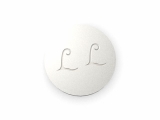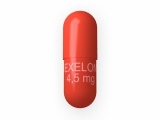Erectile disorder articles
Erectile dysfunction (ED) can be a frustrating and embarrassing condition for many men. ED can affect your self-esteem and your relationships, but it's important to know that it's a treatable condition.
ED is the inability to achieve or maintain an erection sufficient for sexual intercourse. This may be caused by physical or psychological factors.
Causes of ED:
- Cardiovascular disease
- High blood pressure
- Diabetes
- Obesity
- Smoking
- Stress and anxiety
- Performance anxiety
- Depression
If you are experiencing symptoms of ED such as difficulty getting or maintaining an erection, talk to your doctor to determine the underlying cause.
Treatment options for ED include:
- Oral medications such as Viagra or Cialis
- Penile injections
- Vacuum erection devices
- Surgical implants
- Counseling or therapy for psychological causes
Don't let erectile dysfunction control your life. Talk to your doctor today about treatment options that can help you regain your sexual function and confidence.
The Definition of Erectile Dysfunction
What is Erectile Dysfunction?
Erectile dysfunction (ED) is a medical condition that affects a man's ability to achieve or maintain an erection sufficient for sexual intercourse. It is a common problem, especially among older men, and can have a significant impact on quality of life.
Causes of Erectile Dysfunction
Erectile dysfunction can have both physical and psychological causes. Physical causes may include underlying medical conditions such as diabetes, high blood pressure, or heart disease. Certain medications and substance abuse can also contribute to ED. Psychological factors such as stress and anxiety can also play a role.
Treatment Options for Erectile Dysfunction
There are several treatment options available for erectile dysfunction, including medication, therapy, and surgical procedures. Medications such as Viagra, Cialis, and Levitra can help to improve blood flow and increase the likelihood of achieving an erection. Therapy, such as cognitive behavioral therapy, can help to address psychological issues that may be contributing to ED. In severe cases, surgical procedures such as penile implants may be necessary.
It is important to consult with a healthcare provider if you are experiencing symptoms of erectile dysfunction. They can help to diagnose the underlying cause and recommend appropriate treatment options.
- Classic Treatment Options for ED:
- Oral medications
- Injections
- Penile implants
- Vacuum devices
- Surgery
| Treatment Options | Advantages | Disadvantages |
|---|---|---|
| Oral medications | Easy to take | May cause side effects |
| Injections | Can be effective for difficult cases | Requires self-injection |
| Penile implants | High success rate | Invasive surgery |
| Vacuum devices | Non-invasive | May be uncomfortable |
| Surgery | Can resolve underlying medical conditions | May have risks and complications |
The Underlying Causes of Erectile Dysfunction
Physical Causes
Erectile dysfunction (ED) can be caused by various physical factors, ranging from serious medical conditions like heart disease or diabetes to less severe issues such as obesity and smoking. These factors can affect the blood flow to the penis, leading to difficulties in achieving or maintaining an erection.
- Heart disease
- Diabetes
- Obesity
- Smoking
- High blood pressure
- Alcoholism
Psychological Causes
Aside from physical factors, psychological issues can also contribute to ED. Stress and anxiety can affect the brain's ability to communicate with the nerves in the penis, leading to difficulties in achieving an erection. Depression can also cause ED as it affects the body's production of certain hormones.
- Anxiety
- Stress
- Depression
- Relationship problems
- Performance anxiety
Other Causes
Other factors that can cause ED include certain medications and surgeries, as well as lifestyle factors such as a lack of exercise and poor diet. Additionally, aging is a natural contributing factor to ED as the body's ability to produce hormones and function properly decreases.
- Medications
- Surgeries
- Lack of exercise
- Poor diet
- Aging
Addressing the Issue
It is important to speak with a healthcare provider if experiencing symptoms of ED, as underlying medical conditions may require treatment. Lifestyle changes such as exercising and eating a healthy diet can also improve symptoms. Additionally, there are various treatment options available such as medications and therapy that can help with ED.
The Symptoms of Erectile Dysfunction
Difficulty getting or maintaining an erection
One of the main symptoms of erectile dysfunction is difficulty getting an erection or maintaining one for long enough to engage in sexual activity. This can be a frustrating and embarrassing experience for many men and can have a significant impact on their self-esteem and overall quality of life.
Reduced libido
Another symptom of erectile dysfunction is a reduced libido or lack of interest in sexual activity. Men may find that they are no longer as interested in sex as they once were, or that they have a decreased desire for sexual contact.
Delayed or premature ejaculation
In some cases, erectile dysfunction can cause delayed or premature ejaculation. Men with this issue may find that it is difficult to reach orgasms, or they may ejaculate too quickly before they are able to fully enjoy sexual activity.
- Do you recognize any of these symptoms in yourself or a loved one?
- If so, it may be time to seek professional help to find a solution and get back to enjoying a fulfilling sex life.
The Diagnosis of Erectile Dysfunction
Medical History
The diagnosis of erectile dysfunction (ED) typically begins with a thorough medical history. Your doctor will ask about your sexual history, general health, medications, and any underlying medical conditions that may be contributing to your ED.
Physical Exam
A physical exam is also necessary for diagnosing ED. This may include an examination of your penis and testicles, a blood pressure check, and possibly a prostate exam.
Laboratory Tests
Lab tests may also be necessary to diagnose ED. This may include blood tests to check for diabetes, cholesterol levels, and thyroid function. Your doctor may also order a urine test to check for any underlying medical conditions.
Psychological Evaluation
Since ED can have psychological components, your doctor may also conduct a psychological evaluation or refer you to a mental health professional to rule out any underlying psychological issues.
Importance of Diagnosis
It's important to undergo a thorough diagnosis for ED, as it can be a sign of underlying medical conditions such as diabetes, high blood pressure, or heart disease. Early intervention and treatment can greatly improve your overall health and quality of life.
Next Steps
If you suspect you have ED, it's important to speak with your healthcare provider. They can help you determine next steps for testing and treatment. Treatment options for ED include medication, counseling, lifestyle changes, and in some cases, surgery.
The Treatment Options for Erectile Dysfunction
Lifestyle Changes
Erectile dysfunction can often be improved by making simple lifestyle changes. Quitting smoking, reducing alcohol consumption, and exercising regularly are all ways to improve erectile function. Eating a healthy, balanced diet that includes plenty of fruits, vegetables, and whole grains may also help.
Oral Medications
Oral medications, such as Viagra, Cialis, and Levitra, are effective treatments for erectile dysfunction. These medications work by increasing blood flow to the penis, which allows for an erection to occur. It’s important to note that these medications require sexual stimulation in order to work and can cause side effects such as headaches, flushing, and upset stomach.
Injections and Suppositories
Injections and suppositories are another option for treating erectile dysfunction. Medications, such as Alprostadil, can be injected directly into the penis or inserted as a suppository into the urethra. These treatments have a high success rate, but may cause side effects such as pain, bruising, and dizziness.
Surgery
Surgery may be recommended in severe cases of erectile dysfunction. Penile implants, which are inflatable or malleable devices, can be surgically placed inside the penis to allow for an erection to occur. This treatment option has a high success rate and can lead to a satisfying sex life. However, surgery is considered a last resort and can carry risks such as infection and mechanical failure.
Counseling
Counseling may be recommended to address any underlying psychological issues that may be contributing to erectile dysfunction. Relationship problems, anxiety, and depression can all affect sexual function. Working with a therapist can help improve sexual confidence and intimacy.
The Prevention of Erectile Dysfunction
1. Maintain a Healthy Lifestyle
Healthy lifestyle habits can significantly reduce the risk of erectile dysfunction. This includes a nutritious diet, regular exercise, and adequate sleep. Avoid smoking and limit alcohol intake to improve vascular health, which is essential for erectile function. Also, reducing stress through relaxation techniques can help improve overall physical and mental well-being.
2. Seek Medical Care for Chronic Diseases
Chronic diseases such as high blood pressure, diabetes, and heart disease can increase the risk of erectile dysfunction. Regular medical checkups and proper management of these conditions can help prevent or reduce the risk of erectile dysfunction. Effective treatment of these conditions can also help improve overall quality of life.
3. Be Aware of Medication Side Effects
Some medications such as antidepressants, blood pressure medications, and antihistamines can cause erectile dysfunction as a side effect. Be aware of medication side effects and discuss any concerns with your healthcare provider. Alternatives may be available that have fewer or no side effects on sexual function.
4. Maintain Good Communication with Your Partner
Good communication with your partner is essential to maintaining healthy sexual function. Expressing concerns and working together to overcome them can help reduce stress and improve overall sexual satisfaction. Discussing sexual health with your partner can also help identify potential issues and lead to early treatment.
5. Consider Professional Help
If you are experiencing erectile dysfunction, professional help is available. Consulting with a healthcare provider, sex therapist, or counselor can help identify potential causes and develop individualized treatment plans. Treatment options may include medication, therapy, or a combination of both.
By following these preventative measures, you can reduce the risk of erectile dysfunction and improve overall sexual health and satisfaction.
Follow us on Twitter @Pharmaceuticals #Pharmacy
Subscribe on YouTube @PharmaceuticalsYouTube





Be the first to comment on "Erectile disorder articles"